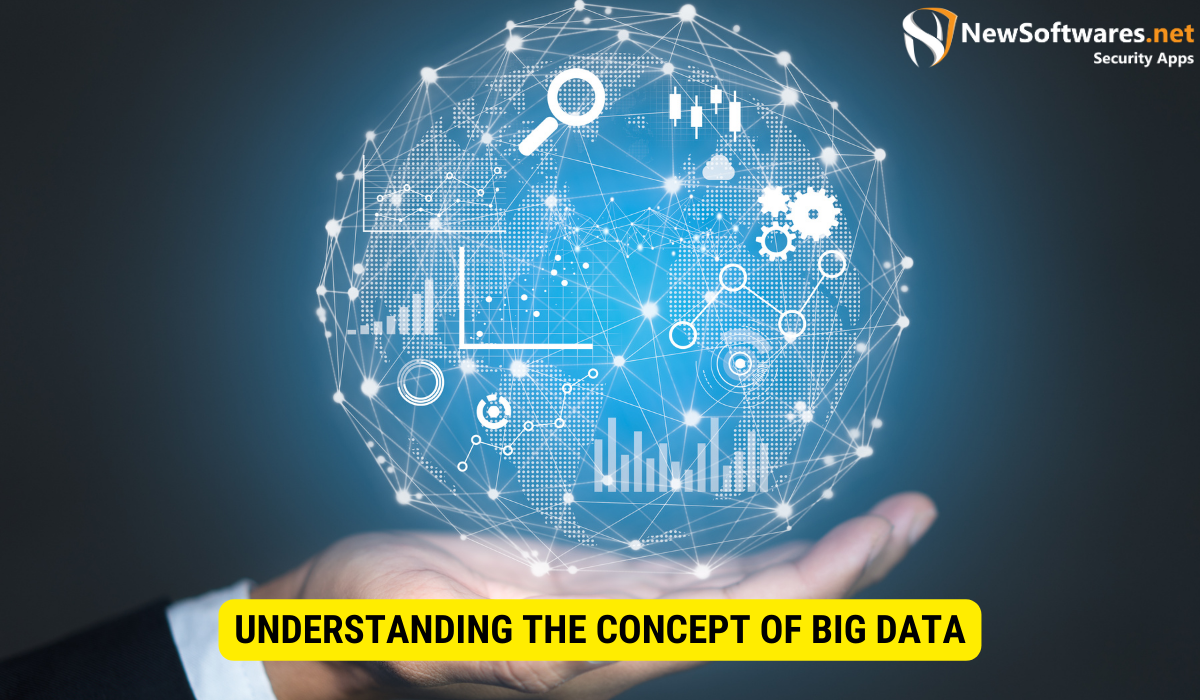Big data has significantly changed privacy by enabling the collection and analysis of vast amounts of personal data, blurring the line between public and private information, and raising concerns about surveillance and potential breaches of privacy.
The concept of big data has revolutionized the way we collect, analyze, and utilize information. With this transformation, privacy concerns have become increasingly significant, as the vast amount of data generated poses risks to personal information and societal norms.
Understanding the Concept of Big Data

To comprehend the impact of big data on privacy, it is essential to define what big data is and how it has evolved. Big data refers to collecting and analyzing large data sets that cannot be effectively managed using traditional methods. Its sheer volume, velocity, and variety require innovative techniques to extract meaningful insights and patterns. As technology has advanced, the generation and utilization of big data have grown exponentially, leading to unprecedented privacy challenges.
Defining Big Data
Big data is characterized by the three V’s: volume, velocity, and variety. The book refers to the vast amount of data generated through various sources, such as social media, online transactions, and sensor networks. This data is constantly being produced, resulting in an ever-increasing volume that can be challenging. The velocity represents the speed at which this data is collected and processed, enabling real-time decision-making. With the advancement of technology, data can now be collected and analyzed in real-time, allowing organizations to respond quickly to changing circumstances. Lastly, the variety denotes the diverse types and formats of data, including text, images, videos, and more. This variety adds complexity to the analysis process, as different data types require other techniques and tools for adequate interpretation.
Moreover, big data is not limited to structured data, such as numbers and categories, but also contains unstructured data, such as social media posts, emails, and customer reviews. This unstructured data holds valuable insights that can offer a more comprehensive understanding of consumer behavior, market trends, and sentiment analysis.
The Evolution of Big Data
The evolution of big data can be traced back to the growing digitalization of our world. With the start of the internet, social media platforms, and advanced technologies, the amount of data produced has skyrocketed. Every interaction we have online, every transaction we make, and every device we use generates data. This data is then collected, stored, and analyzed for valuable insights.
Organizations and governments recognize the value of this data in gaining insights, making informed decisions, and driving innovation. Big data analytics can provide a competitive advantage for businesses by identifying customer preferences, optimizing operations, and improving product development. Governments can leverage big data to enhance public services, detect fraud, and make data-driven policy decisions.
However, this growth in big data has also raised concerns about privacy and protecting personal information. As more data is collected, individuals’ privacy can be compromised. The vast amount of data available can potentially reveal sensitive information, such as personal habits, preferences, and even location. This has led to debates about the ethical use of data and the need for robust privacy regulations.
Furthermore, the sheer complexity of big data poses challenges in terms of storage, processing, and analysis. Traditional database management systems and analytical tools are often inadequate to handle the volume and variety of big data. As a result, new technologies and techniques, such as distributed computing, cloud storage, and machine learning algorithms, have emerged to address these challenges.
In conclusion, big data has revolutionized how we collect, analyze, and utilize information. Its impact on privacy cannot be ignored, as the vast amount of data generated raises concerns about protecting personal information. However, when used ethically and responsibly, big data can drive innovation, improve decision-making, and enhance various aspects of our lives.
The Intersection of Big Data and Privacy
Big data and privacy are intricately connected, with big data playing a substantial role in shaping privacy practices and norms. Understanding the relationship between these two is crucial in comprehending the impact of big data on privacy.
The Role of Big Data in Privacy
Big data has enabled organizations and governments to gather vast amounts of data about individuals, including their behaviors, preferences, and personal information. The analysis of this data has provided valuable insights and benefits, such as personalized advertising, improved healthcare services, and enhanced security measures. However, the extensive collection and analysis of personal data raise concerns about surveillance, profiling, and potential privacy breaches.
The Impact of Big Data on Personal Information
The proliferation of big data has led to blurring the line between public and private information. Personal details that were once considered private, such as browsing history, location data, and online interactions, are now continuously collected and analyzed. This can have significant implications for individuals’ privacy, as the misuse or unauthorized access to this information can result in identity theft, discrimination, or manipulation.
The Shift in Privacy Norms Due to Big Data
The rise of big data has prompted a shift in societal perspectives on privacy. Traditional notions of privacy, where individuals could control their personal information and limit its dissemination, are becoming increasingly challenging to maintain in the face of extensive data collection and analysis.
Changing Perspectives on Privacy
As big data becomes more prevalent, individuals reevaluate their privacy expectations. The convenience and benefits offered by digital technologies often require surrendering certain privacy rights. This trade-off raises questions about informed consent, transparency, and the ability to control and manage personal data. Society must grapple with these evolving norms to strike a delicate balance between privacy and the benefits derived from big data.
The Influence of Big Data on Privacy Policies
The influence of big data on privacy has led policymakers and institutions to reevaluate their privacy regulations and policies. To address public apprehensions, recent laws like the General Data Protection Regulation (GDPR) have been enacted with the goal of safeguarding the rights of individuals’ privacy and promoting responsible data management practices. Nonetheless, the persistent challenge lies in finding the correct equilibrium between fostering innovation and preserving privacy.
Big Data and Legal Frameworks
The convergence of big data and privacy presents substantial legal ramifications. Governments and regulatory authorities worldwide are wrestling with the task of formulating suitable legal frameworks to oversee the collection, retention, and utilization of personal data.
The Role of Legislation in Big Data Privacy
Legislation plays a critical role in safeguarding individuals’ privacy rights in the context of big data. Data protection and privacy laws aim to regulate how organizations and governments handle personal information and ensure accountability for data breaches. By establishing legal requirements and privacy standards, legislation strives to strike a balance between promoting innovation and safeguarding privacy.
International Privacy Laws and Big Data
The global nature of big data poses challenges for privacy regulation. Different countries have varying legal frameworks and cultural norms regarding privacy. Achieving consistency and harmonization in international privacy laws is essential in effectively addressing big data privacy concerns and facilitating cross-border data flows.
The Future of Privacy in a Big Data World

Looking ahead, privacy considerations in the era of big data will continue to evolve. Anticipating the future of privacy requires understanding the potential trajectory of big data and its implications for individuals and societies.
Predicting the Future of Privacy
The future of privacy in a big data world is likely to be shaped by advancements in technology, regulatory developments, and societal attitudes. With the advancement of artificial intelligence, the Internet of Things (IoT), and predictive analytics, the collection and utilization of personal data will likely become even more pervasive. It will be crucial to assess the balance between the benefits and risks associated with big data to ensure privacy and individual rights are protected.
Balancing Big Data and Privacy in the Future
Finding the right balance between big data utilization and privacy protection will be a key challenge. Striking a balance requires collaboration among governments, organizations, and individuals. Transparency, accountability, and ethical data practices will play a vital role in upholding public trust and safeguarding privacy rights.
Key Takeaways
- Big data has significantly impacted privacy by enabling the gathering and study of massive amounts of personal data.
- Privacy norms and expectations are evolving due to the extensive collection and analysis of personal information.
- Legal frameworks and legislation are evolving to address privacy concerns in the context of big data.
- The future of privacy in a big data world depends on balancing the benefits and risks associated with data collection and utilization.
Frequently Asked Questions
Q: How has big data changed privacy?
A: Big data has changed privacy by enabling the gathering and analysis of vast amounts of personal data, blurring the line between public and private information and raising concerns about surveillance and potential breaches of privacy.
Q: What is the role of legislation in big data privacy?
A: Legislation plays a critical role in protecting privacy rights and ensuring responsible data handling practices in the context of big data. It establishes legal requirements and privacy standards to regulate organizations’ and governments’ collection, storage, and utilization of personal data.
Q: What is the future of privacy in a big data world?
A: The future of privacy in a big data world is likely to be shaped by technological advancements, regulatory developments, and societal attitudes. Achieving a balance between big data utilization and privacy protection will be crucial, and transparency, accountability, and ethical data practices will play a significant role in maintaining public trust and protecting privacy rights.
